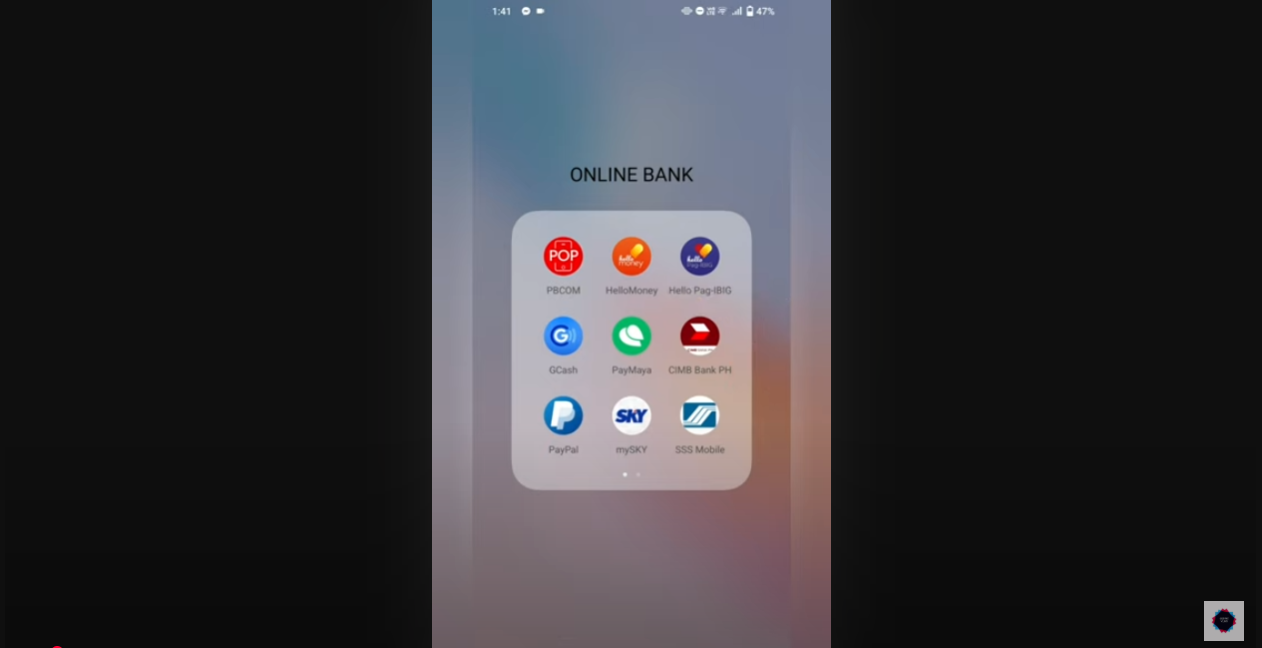Are you planning a big purchase or looking to consolidate debt but unsure how to finance it? A CIMB personal loan might be the solution you’re considering. However, before you apply, it’s important to understand its key details to make the right financial decision that matches your needs.
Knowing what to expect, from eligibility requirements to interest rates and repayment terms, can help you determine if this loan aligns with your financial goals. Therefore, this blog will explore the essential points to remember before applying for a CIMB Personal Loan in the Philippines.
Comparing Secured And Unsecured Loans
When you're considering a loan, it's crucial to understand the differences between secured and unsecured options. Secured loans require you to offer an asset as collateral, like a car or home, which can make these loans less risky for lenders and result in lower interest rates.
For instance, title loans use the vehicle title as collateral, while home equity loans tap into the value of your home. However, the stakes are high with secured loans—defaulting can mean losing your collateral. This process involves an appraisal of the collateral, which can be time-consuming and entail additional paperwork.
If the sale of the collateral doesn't cover the loan amount, you might need to pay the remaining balance, which could add financial strain. On the other hand, unsecured loans don't require collateral, relying instead on your creditworthiness. They serve various needs, including weddings, home improvements, and emergencies.
Common uses for unsecured loans in the Philippines include:
- weddings
- education
- home improvements
Examples of Unsecured Loans
Examples include personal loans and credit card cash advances. However, be mindful that unsecured loans often carry higher interest rates and can quickly impact your credit score due to hard inquiries, especially if you apply to multiple lenders in a short time.
Also Read: Legalities of Lending Money And Interest Rate in The Philippines
Role of Credit Scores in CIMB Personal Loan Approval
How important is your credit score when applying for a CIMB Personal Loan? Your credit score plays a significant role in determining your eligibility and the terms of your loan. It reflects your financial behavior and helps lenders assess the risk of lending to you.
Here, take a closer look at how credit scores impact loan approval in the Philippines:
Key Factors Influencing Credit Score
A strong credit score is vital for securing a CIMB personal loan. A credit score measures your creditworthiness and projects your ability to repay the loan under reasonable conditions. Credit scores in the Philippines range from 300 to 950. Higher scores suggest greater reliability, enhancing your chances of securing favorable loan terms.
For banks and financial institutions, such as those involved in discussions on Reddit about CIMB personal loans, a reliable score over 650 helps ease the process of accessing credit products, while a score below 650 might complicate loan approvals.
The main factors influencing your credit score revolve around payment history, credit utilization ratio, and the length of your credit history.
- Payment History: Timely payment of debts is imperative. Late payments can have a substantial negative impact on your score.
- Credit Utilization Ratio: It is advisable to manage your credit utilization by keeping it at or below 30%, which is a clear indicator of responsible usage.
- Length of Credit History: Lenders often view a long credit history positively, as it shows a track record of reliable debt management.
Strategies to Maintain a High Credit Score
Maintaining a high credit score involves the following strategies:
- Pay your bills on a timely basis.
- Monitor your credit report regularly to catch and correct errors.
- Avoid opening too many new credit accounts in a short period.
Additionally, tools like pre-qualification for loans provide insights into potential rates and terms without impacting your score.
Also Read: How to Repay a CIMB Bank Loan Online in The Philippines
Start achieving your business goals with N90’s quick loan options! Apply now and access funds for your Philippine SME within 24 hours. Our fast financing solutions are designed to empower your growth—don’t wait to make your dreams a reality. Apply Today!
Decoding The Costs of CIMB Personal Loans in The Philippines
Securing a personal loan can be a helpful financial tool, but understanding the various fees associated with it is crucial. These fees can impact how much the loan will actually cost in the long run, so having a clear picture of each charge is important.
Processing Fees
One of the standout features of CIMB Personal Loans in the Philippines is the absence of processing fees, making it more affordable to access the funds you need. Additionally, you benefit from no early settlement fees, allowing you to repay the loan ahead of schedule without incurring extra charges.
CIMB also does not enforce a lock-in period, giving you the flexibility to manage your loan repayment at your convenience. Furthermore, there are no stamp duty charges, ensuring a cost-effective borrowing experience from start to finish. These fee waivers make CIMB Personal Loans an attractive option for those seeking financial assistance without hidden costs.
Interest Rates
Depending on your credit risk, monthly interest rates start from 0.83%, which translates to an annual interest rate of 18%, which is quite significant. Higher interest rates mean bigger monthly payments and a more considerable impact on your budget.
Disbursement Fees
For those using non-CIMB accounts, a disbursement fee of 1% of the principal amount, or PHP 500, whichever is higher, applies. Balancing these costs with your choice of banking can help reduce extra expenses.
Late Payment And Early Repayment Fees
- Late payment penalties can add up quickly, set at 5% of the unpaid installment or PHP 300, whichever is higher. This can strain your finances if not managed efficiently.
- On the other hand, the early repayment fee, while irritating, stands at 5% of the unbilled amount or a minimum of PHP 300. Decide whether to pay off early depending on whether the interest savings outweigh this fee.
Documentary Stamp Tax And Other Costs
For loans over PHP 250k, the documentary stamp tax is PHP 1.50 for every PHP 200 of the loan. This, along with possible notarial charges, is often overlooked but vital for comprehensive budgeting. Recognizing these fees ensures a smoother repayment experience.

Are you looking to apply for CIMB personal loans in the Philippines? Check out this video. It highlights all the tips you need to know to research, prepare, and get approved for a CIMB personal loan in the Philippines.
Moreover, exploring advice and experiences from other borrowers can be enlightening and help keep unexpected fees in check. Platforms such as this Reddit thread offer firsthand accounts that highlight the importance of understanding these financial commitments.
Also Read: Getting Approved For Bad Credit Loans in The Philippines
Best Practices For Effectively Managing CIMB Personal Loans in The Philippines
Managing personal loans from CIMB involves preparation and financial discipline. Here are a few pointers to guide you the right way:
Conduct Thorough Research
Before applying, it's crucial to conduct comprehensive research on the eligibility requirements. For CIMB, for instance, you need to be between the ages of 21 to 58 years old, with a minimum gross monthly income of PHP 25k, among other criteria. This helps ensure you meet the lender's basic qualifications and reduces the risk of application rejection.
Meeting Eligibility Criteria
Preparation extends beyond just meeting eligibility criteria; organizing the necessary documents in advance can significantly streamline the application process. Valid IDs, proof of income, and proof of address are typically required, and having these ready can prevent delays. To further expedite the process, consider utilizing digital copies.
Budgeting
Creating a well-thought-out budget is also key to responsibly managing a personal loan. Using frameworks like the 50/30/20 rule can ensure your loan repayments fit smoothly into your financial plan. Automatic payment setups can also safeguard against late payment penalties, which is vital for maintaining a good credit score.
Assess the Loan's Purpose
After clearly understanding your financial obligations and responsibilities, assess the loan's purpose carefully. Ensuring alignment with long-term financial goals is essential to prevent potential debt traps. Weigh whether the loan purpose, be it for education, medical emergencies, or home improvements, is prudent.
The loan range offered by CIMB, PHP 30k to PHP 1 million, combined with the flexible repayment terms of 12 to 60 months, allows borrowers to tailor their loans to their specific needs, making it easier to align with financial plans. More details and guidance on selecting loan amounts and durations can be found on CIMB Bank's FAQ page here.
Also Read: Philippines Loan Agreement Sample - Components, Conditions, Penalties, And More
Utilize CIMB's User-Friendly Mobile App
Applying for a personal loan involves using platforms such as the CIMB Bank PH mobile app, which offers a user-friendly application process. The app facilitates eligibility checks, loan amount selection, and document uploading for quick approval.
Initial approval can be secured in as little as 10 minutes, with full approval potentially within 24 hours, as detailed here.

To gain a deeper understanding of personal loan management, you might find value in this YouTube video, where a user shares their personal experience applying for a CIMB Personal Loan. It provides practical insights into potential challenges and preparation strategies, offering a relatable perspective on maintaining responsibility when managing loans.
Conclusion
Before applying for a CIMB personal loan, it's essential to understand the eligibility requirements, interest rates, repayment terms, and application process. Proper research and preparation will help you make an informed decision that aligns with your financial goals. By evaluating your needs and comparing loan options, you can maximize the benefits of CIMB's personal loan offerings while ensuring manageable repayment.
For Filipinos seeking financial assistance, platforms like n90 can be valuable resources. n90 simplifies access to information about various financial products, empowering individuals to make sound financial decisions.
Whether you're planning to apply for a CIMB personal loan or exploring other financial opportunities, n90 can guide you every step of the way. n90 helps users evaluate their options, compare loan features, and find the most suitable financial solutions for their unique needs.
Frequently Asked Questions (FAQs)
1. Is it easy to get a CIMB loan in the Philippines?
Getting a CIMB loan in the Philippines is relatively easy if you meet the eligibility requirements, such as having a stable income and providing valid identification. The online application process is straightforward, with quick approvals and minimal paperwork.
However, approval depends a lot on your credit score and financial profile, so it's crucial to ensure good credit standing.
2. How long does CIMB take to approve a loan in the Philippines?
CIMB typically processes loan applications in 1 to 2 business days in the Philippines. The approval time depends on how quickly you submit the required documents and meet eligibility criteria. Once approved, the loan amount is disbursed promptly to your account.
3. How to know if a CIMB Personal Loan is approved?
You'll be notified of your CIMB Personal Loan approval via email or SMS. The notification will include the approval details, loan amount, and repayment terms. Additionally, you can check your application status by logging into the CIMB app or contacting their customer service. Ensure your contact details are accurate to receive timely updates.
4. Why is my CIMB loan getting rejected?
One of the primary reasons why your CIMB loan is getting rejected is because you already have multiple outstanding loans with them. They are unwilling to lend you more resources and over-burdening your already stretched economic capabilities. Other prominent issues could be your poor repayment history and a bad credit score.













